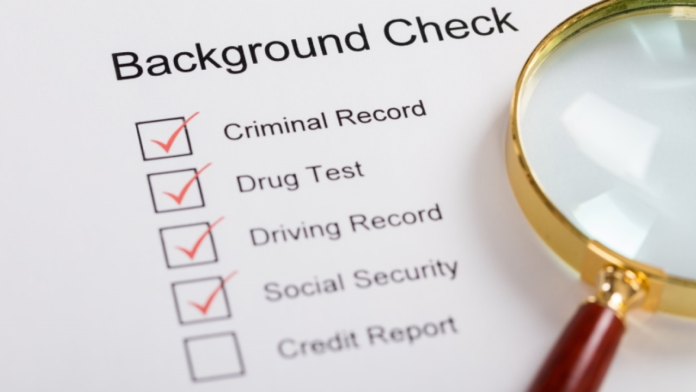Background Checks Are Essential par Background checks have become an essential component of many processes in Canada. For immigration applications and employment screenings, to student loans and rental applications. Understanding what a background check requires can have major resuilt on both personal and professional lives. We will explore all the aspects related to background checks in this comprehensive overview, from their purpose, types and effects.
What exactly constitutes a background check in Canada?
Background checks provide an in-depth examination of an individual’s personal, criminal, financial, and professional history. Commonly referred to as police checks or criminal record checks – with the primary goal being evaluating an individual for specific roles, activities or benefits and verifying any inaccurate information provided about themselves or third-party organizations conducting these tests. Authorized government agencies or authorized third-party organizations perform such audits.
What Types of Background Checks Can be Conducted in Canada?
Background checks in Canada come in various forms depending on the nature and scope of an inquiry; commonly-utilized ones include:
Criminal Records Check
Criminal background checks primarily concentrate on uncovering information regarding an individual’s criminal past. Convictions or charges that have yet to be brought against them, among other pertinent details. Criminal record checks play an essential role when applying for employment.
Assess Vulnerable Sectors:
Vulnerable Sector Checks take it a step further by searching out people who pose potential threats to vulnerable groups like children or the elderly. In these checks, individuals’ criminal history including non-conviction records. Conditional discharges are scrutinized more thoroughly during these checks.
Checking Your Credit History
Financial institutions and potential landlords often conduct credit history checks in order to assess an individual’s financial responsibility. Through them they obtain details regarding credit accounts, outstanding debts, bankruptcies and any other relevant records which might indicate financial responsibility on an individual level.
Background Check for Job Opportunities
Employers frequently conduct background checks on potential hires to ascertain their professional credentials, educational achievements and employment history. Candidates who pass these screenings tend to be qualified individuals willing to disclose any pertinent details regarding their past.
Visa and immigration background checks
People applying for visas or immigration status in Canada undergo comprehensive background checks that evaluate criminal histories, security risks and any eligibility rules they might breach.
Who Can Request a Background Check?
Canadian law dictates whether or not background checks should be requested depending on the purpose and nature of an inquiry, with typical scenarios including:
- Employers: Employers may request background checks as part of the hiring process to ascertain a candidate’s suitability for certain roles. Before conducting such an inquiry, however, consent from both candidate and employer must first be obtained prior to proceeding with it.
- Charitable organizations: Organizations serving at-risk populations such as youth or the elderly often entail thorough screening procedures when recruiting volunteers for these organizations to ensure client safety.
- Institutions of Finance: When individuals apply for credit cards, mortgages or loans from financial institutions, financial checks will likely be performed on them in order to assess risk and evaluate application success.
- Landlords: Background checks provide landlords with an invaluable way to evaluate potential tenants’ financial responsibility and rental history.
Institutions of the State
Government agencies such as immigration authorities and law enforcement conduct background checks regularly for various purposes such as security clearance applications or immigration applications.
Steps Required to Conduct a Background Check in Canada In Canada, conducting a background check typically entails taking several steps:
Consent
Before performing any background check on an individual, they will typically need their written approval in the form of either an online authorization form or another specific method.
Submission
Once a request has been sent to an authorized entity (for instance a police department or third-party background check provider), their check begins immediately – in some instances fingerprinting may also be required in criminal record searches.
Verification and Evaluation
To conduct an effective inspection, an organization coordinating it will survey all significant datasets and records to create an informative report.
Results of Background Checks for Employment
Once completed, the background check results are delivered directly to those requesting them – typically an employer or prospective employee in this instance.
Decision
Based on the information uncovered through historical investigation, an association or authority makes decisions based on this analysis, including making hiring decisions, issuing licenses or processing applications for immigration.
Privacy and Data Security Dimensiuni surrounding Canadian
background check procedures are paramount, from data collection and use through to disclosure regulated by PIPEDA (Personal Information Protection and Electronic Documents Act). Individuals have access to their own records as well as request amendments if necessary, while background check companies must abide by stringent privacy regulations when handling sensitive data.
Background checks in Canada serve a range of functions, from immigration and employment applications, to citizenship applications. Both individuals and organizations must understand all types of background checks available and the procedures involved; as these checks contribute to safeguarding safety and integrity while at the same time respecting privacy – regardless of if it be for business recruiting decisions or personal visa applications, an understanding of record verifications is key in successfully traversing these cycles.

